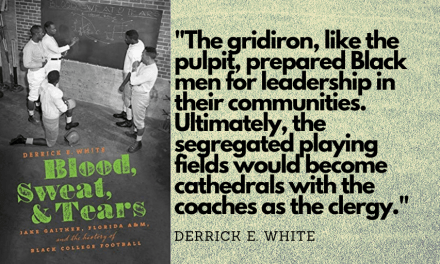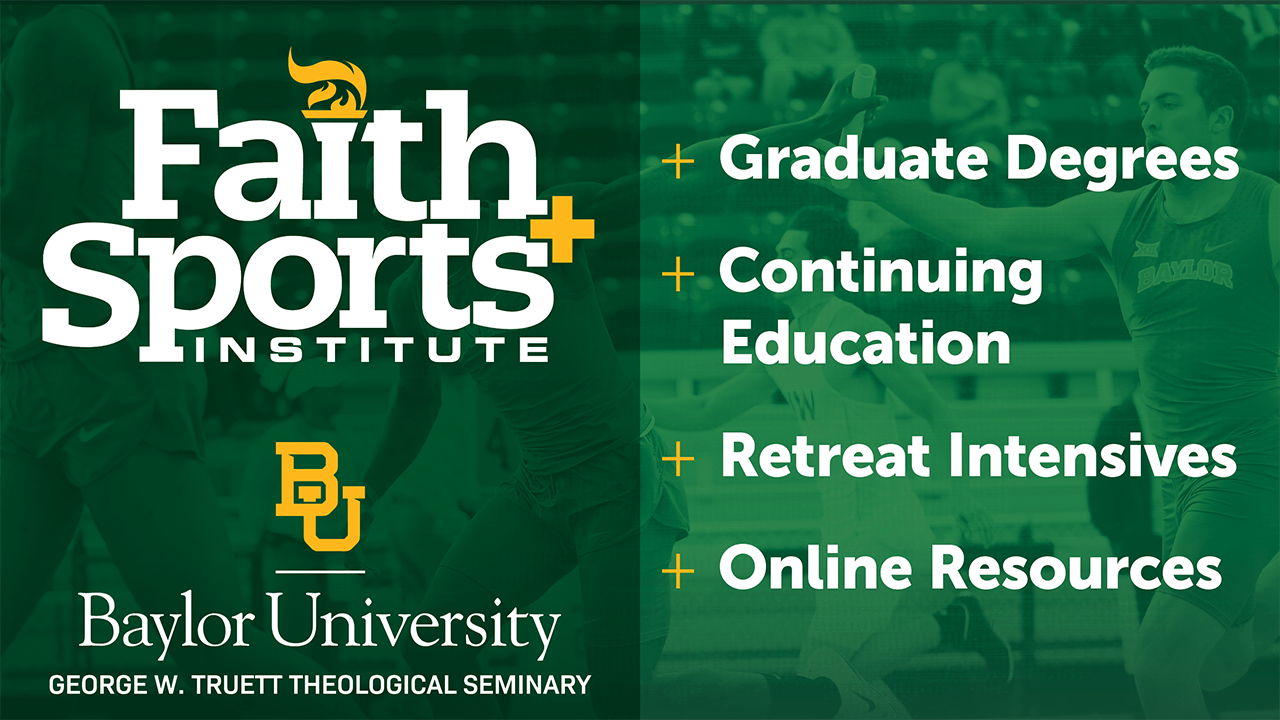Editor’s Note: One of my favorite books this year is James Eglinton’s new biography of Dutch Reformed theologian Herman Bavinck. After reading it, I was curious to know if Bavinck ever wrote about or considered sports within his theological framework. So I asked Dr. Eglinton. He not only graciously replied, he also agreed to write a short blog post on the topic. If you’d like to know more about Bavinck’s significance and Eglinton’s new biography, check out this interview.
Throughout his life, the Dutch Reformed theologian Herman Bavinck (1854-1921) argued that Christianity is good news for all of life: just as the spread of sin has left no part of our human lives untouched, the gospel’s redemptive power also extends into every sphere of our existence. It aims at reordering a creation disordered by sin. Anything less than this, Bavinck’s thought goes, and Christianity would cease to be a truly catholic faith. In my recent Bavinck: A Critical Biography (Baker Academic, 2020), I describe Bavinck’s own example as a modern person who lived out that ideal as a Christian polymath. He was a figure who tried to think and live Christianly in many different roles: professor, pastor, husband, father, journalist, biographer, travel writer, politician, pedagogue, and psychologist.
Those who have read some Bavinck will be used to hearing his regular refrain that Christianity is good news for science, art, and society. What, however—if anything—did Bavinck say on Christianity and sports? Is the Christian faith also good news for the world of sport? While Bavinck himself was certainly no athlete, he lived through the late nineteenth and early twentieth centuries—decades in which sport became increasingly organized and popular in Dutch culture—and offered theological commentary on the “sportmania” of his day.
Sports and Sin
As a young professor in the 1880s, Bavinck set to work on twin volumes: Reformed Dogmatics and Reformed Ethics. Although his Dogmatics was published, expanded, and in more recent times, has been released in various languages, his ethics text was never completed. (A century on, the unfinished Reformed Ethics has also been translated and published.) In Reformed Ethics, the young Bavinck describes the worth of physical exercise:
Temporal life has great value in itself for humanity and also in the goal of the life that lies beyond us [i.e. eternal life]. Bodily life must be sustained not only in its being—within which we suffer, due to immorality, among other things—but also in its well-being and health. This makes moderation in food and drink obligatory. The body is serviceable for work, and work serves health, which can sometimes be strengthened further by exercise.[1]
In principle, then, Bavinck had argued that physical exercise—the intentional conditioning of the body beyond what is required for normal work—is a good thing. Later in the same manuscript, though, he resumes his discussion of exercise by moving into the category of organized sport, doing so under the heading of “Sins that take pleasure in form”:
Self-love. People love and are pleased with themselves and, for that reason, love other things related to themselves. People are first of all pleased with their own physical beauty, physical strength… With men…it is being pleased with strength, power, health of spirit, and body and expressed in sports and gymnastics… these are sins of vanity.[2]
Athletic prowess, he reasoned, is accompanied by a host of dangers: a relentless awareness of being seen and judged by onlookers on the basis of physique and performance, a tendency towards a people-pleasing idolatry, a fixation with aesthetics (and accompanying neglect of the inner life and quality of character), an arrogant disdain for those less impressive than yourself, and a fragile ego. The thrust of Bavinck’s analysis is that elite sportspeople face distinct challenges that prevent them from embracing the gospel in particular ways: because of the unique pressures of their sporting environment, “such people flee from the cross and from death.” (Although those committed to sports-based ministries might not expect Herman Bavinck to be their patron theologian, it is certainly true that he has written more than most to undergird their cause.)
Sport as a Cultural Good
While the general thrust of his handling of sports in Reformed Ethics is cautionary, Bavinck certainly did not hold sport at arm’s length, as though to avoid being contaminated by it. Rather, in his later work Philosophy of Revelation (1908), he treats sport with a certain givenness: like religion, sport is a ubiquitous feature of human culture, and something that grows naturally from human nature itself. “Most certainly other agencies besides religion have been at work in the development of science, philosophy, art, etc. as, for instance, curiosity, desire for adornment and sport, and the like.”[3]
In his argument, we should expect things like sport and fashion to emerge wherever human culture takes root: “the elements of culture…have always existed, as far as history carries us back.”[4] They are part of what he describes as “life—full, rich life.” And most searchingly, he argued, they exist as an extension of our inherent human religiosity. We are creatures who yearn for our Creator in all things. To Bavinck’s deeply Augustinian instincts, sport is one of many gifts to be used to enjoy that Creator.
And yet, he argues, the world of sports is part of the fallen order of creation. Like every element of culture, it first grows as part of what is, at heart, an essentially religious striving for the one true God, but then metastasizes into its own false religion. How should Christians navigate the world of sports in light of Bavinck’s narrative?
Sports, Teenagers, and Schools
The beginnings of Bavinck’s answer are found in his remarkable—and as yet untranslated—book, On Raising Teenagers (De opvoeding der rijpere jeugd, 1916). There, Bavinck sketches a history of the teenager with a particular focus on distinct ways that cultures have viewed and facilitated adolescent development from the ancient Greeks to the early twentieth century. Throughout that history, he argues, sports cultures have emerged and served the formation of adolescents well because sports provide young people with enjoyment and companionship in a formative phase of life. Sport is no bad thing, and has a particular appeal to the young because of all it offers to meet important needs at a certain stage of life—for which reason much of his analysis on sport in the lives of teenagers deals not with questions of whether to encourage Christian youth to join sports teams, but rather, with how Christian parents might help their teenagers think through the importance (or centrality) of sports in the overall balance of a life wisely lived.
At this point, Bavinck was writing in the context of the First World War, and was deeply concerned with the development of a new post-Christian politics of might and domination. He was particularly concerned by the emergence of an anti-Christian brand of socialism that had begun to spread into Dutch culture from Germany. Within that particular socialist sub-culture, he observed, youth associations—a common feature of early twentieth century Dutch culture—prioritized sport and physical exercise above all. In those circles, physical weakness was looked down on, and physical strength praised. (It’s worth noting that around the same time, Bavinck began to write as an early advocate of what we now might call Disability Theology.) By contrast, Bavinck encouraged Christian youth associations to enjoy and encourage sports, but within a different order of priority. His Christian approach to sports was to prize them for the goods they provide—physical and mental well-being, and community—rather than as a means to dominate others. The sports field becomes a theater of God’s glory when it serves the growth of virtue, which requires the sporting environment to be centered on a formative center elsewhere. Sport, he thought, does not exist as its own end.
This approach took further shape in his writings and speeches on Christian education. Throughout his career, Bavinck advocated for the development of state-funded Christian schools. Alongside this, he wrote a great deal on the workings of Christian pedagogy, and argued in that context that a Christian curriculum should value sports classes as an extension of the doctrine of creation—God made our bodies, and Christian children should be taught how to use them for God’s glory—and as a way to express Christian virtue. A Christian curriculum needs sports.
Bavinck and “Sportmania”
Bavinck’s own life and work came to an end at an interesting point in the development of sports as a form of mass entertainment in Dutch culture. By the time he died, at the outset of the 1920s, sport had taken on a new level of cultural significance—it became common for the Dutch to speak of “sportmania”. By that point, though, Bavinck was in the process of a long and slow death, and as such he made no direct contribution to helping Dutch Christians think about this particular trend. In 1920, however, a new generation of Christians began to think constructively about how to respond to this mania, drawing on Bavinck—their theologizer of sport—in the process. Writing in the Reformed Youth Newspaper (Gereformeerd jongelingsblad), one such young Christian writer noted:
It still seems to be the case that in our circles, people mostly blend into the general sportmania of our time. And we consider that an astonishing thing. But it is regrettable that [in our circles] so much lazy prejudice against sport also exists…
In typically Bavinckian fashion, this writer rejected both a general condemnation of the new developments in sports culture, and an uncritical acceptance of it. “All the more, in our circles, the eyes of many are being opened regarding the meaning of sport. Dr. Kuyper, Dr. Bavinck and so many of our other prominent theologians remind us not to despise the development of the body.” (This particular argument was made as a defense of the practice of Christian newspapers reporting on sports.)
To be sure, the mass industry that is sports entertainment has grown on a scale perhaps unimaginable not only to Bavinck, but also to the young Christians who grappled with his thoughts as the Dutch became more religiously committed to it in the 1920s. In terms of the basic theological building blocks with which to approach the world of sports in our day, however, Bavinck still has much to offer.
Dr. James Eglinton is Meldrum Senior Lecturer in Reformed Theology at the University of Edinburgh. He is the author of Bavinck: A Critical Biography (Baker Academic, 2020). Follow him on Twitter: @DrJamesEglinton
Notes
[1] Herman Bavinck, Reformed Ethics (Grand Rapids: Baker Academic, 2019), 231.
[2] Bavinck, Reformed Ethics, 124-5.
[3] Herman Bavinck, Philosophy of Revelation: A New Annotated Edition, eds. Nathaniel Gray Sutanto and Cory Brock (Peabody: Hendrickson, 2018), 119-20.
[4] Herman Bavinck, Philosophy of Revelation, 121.






